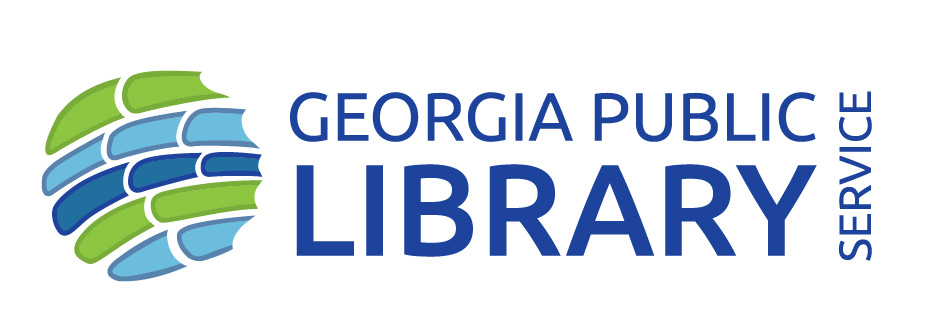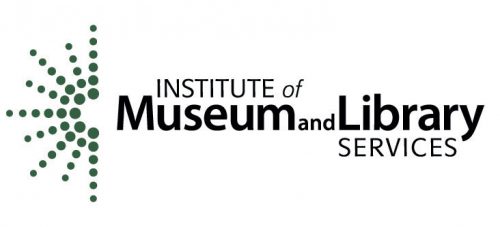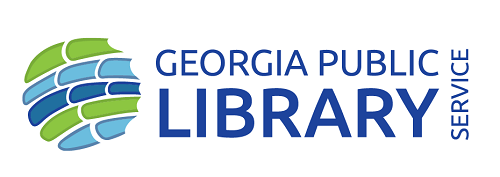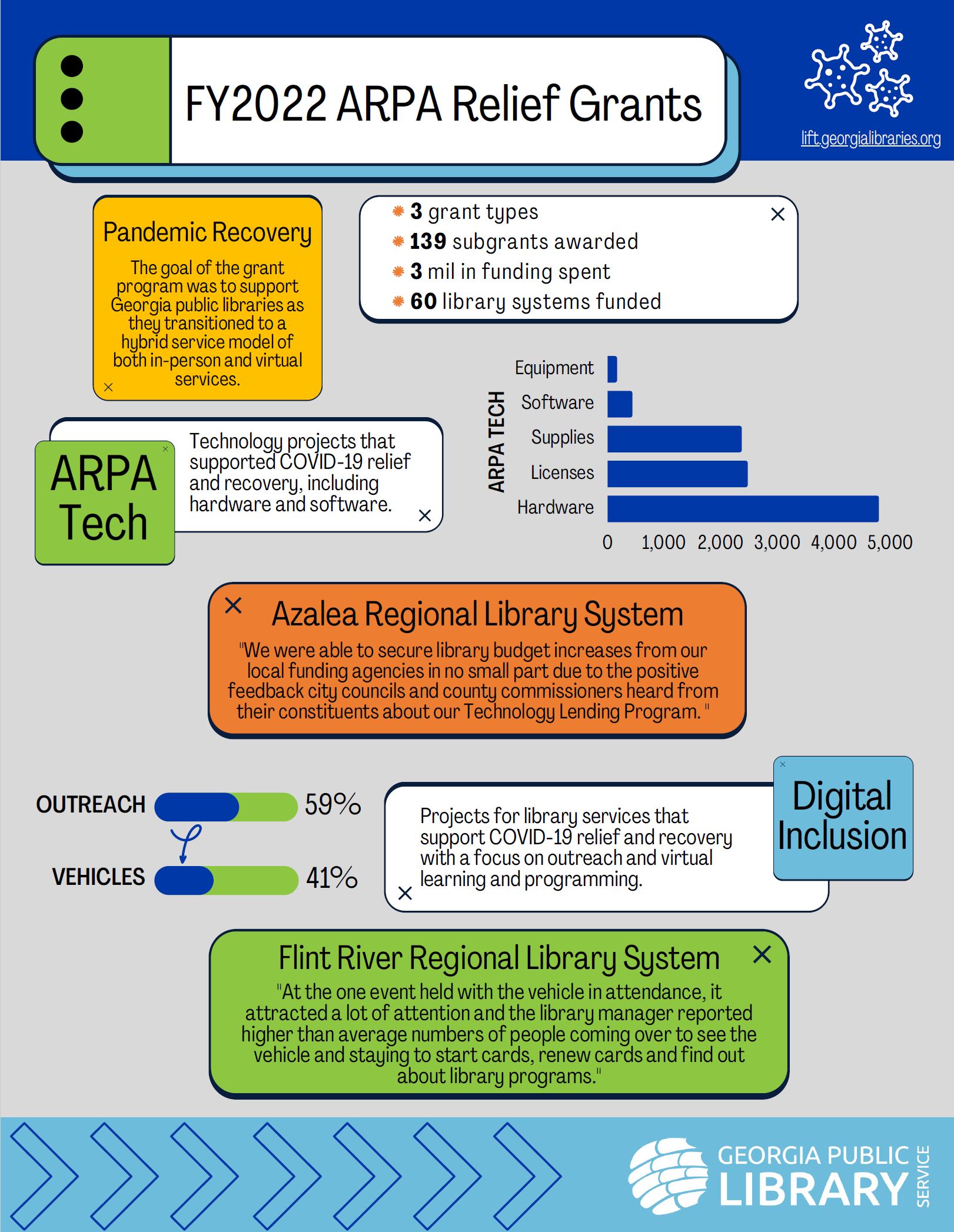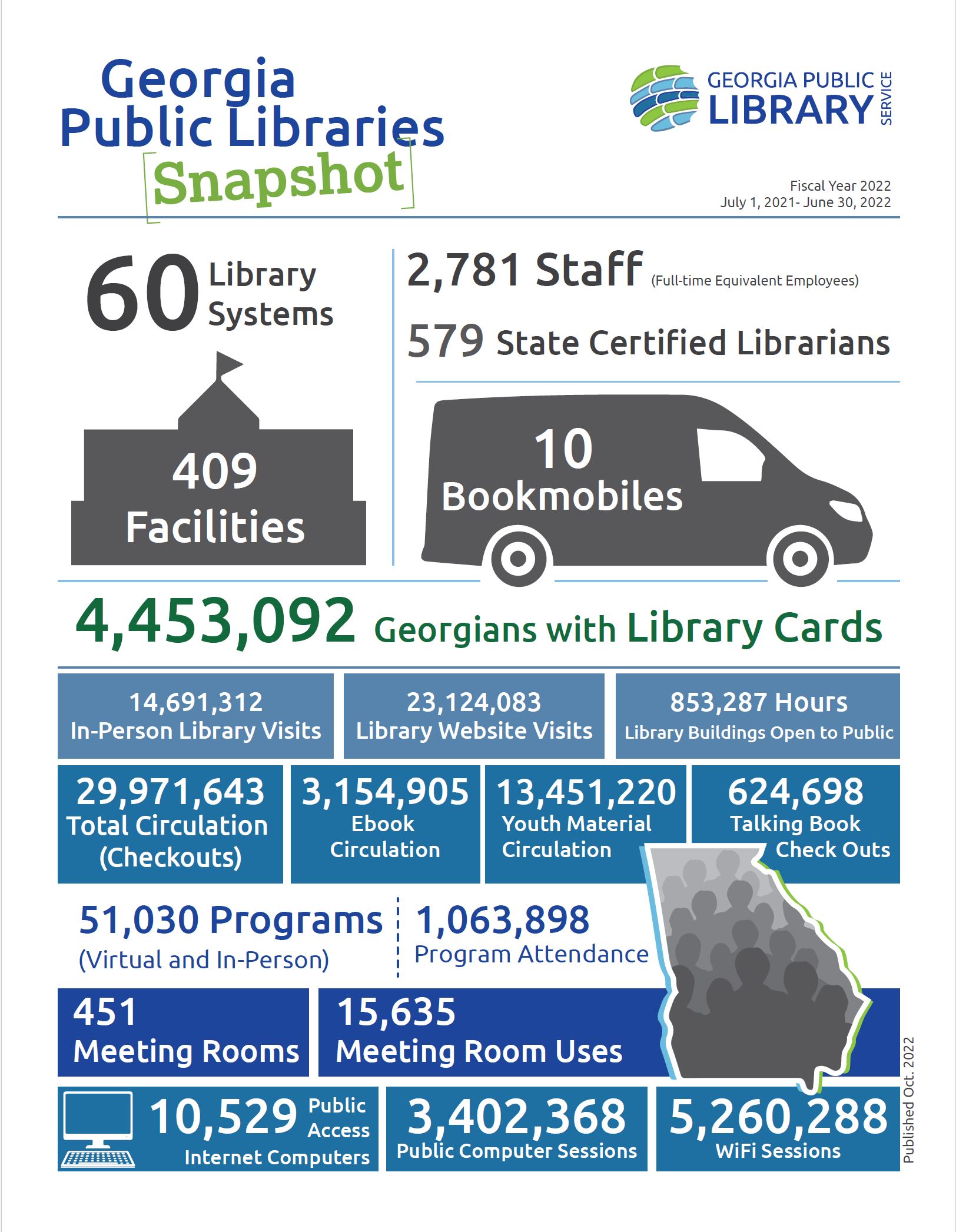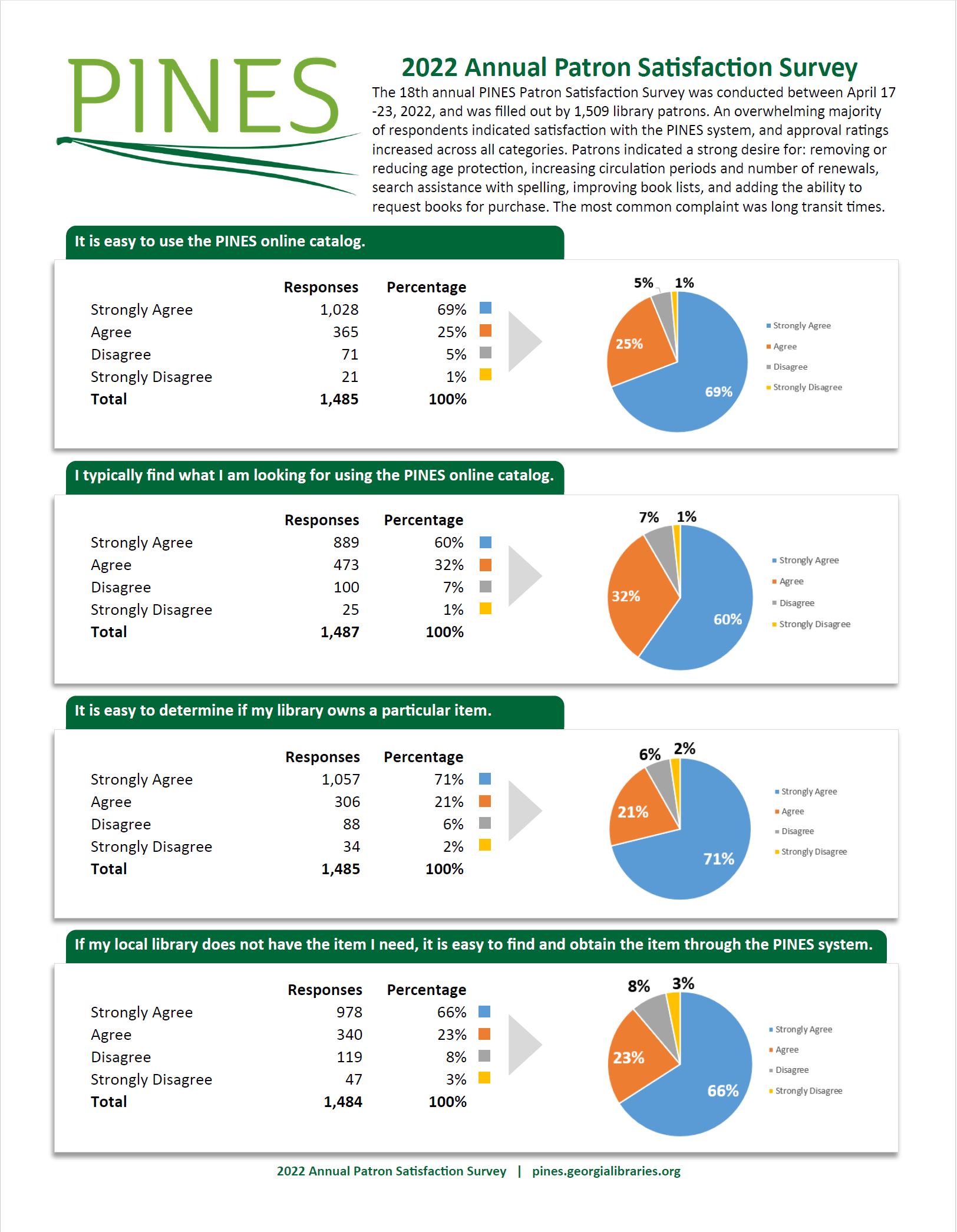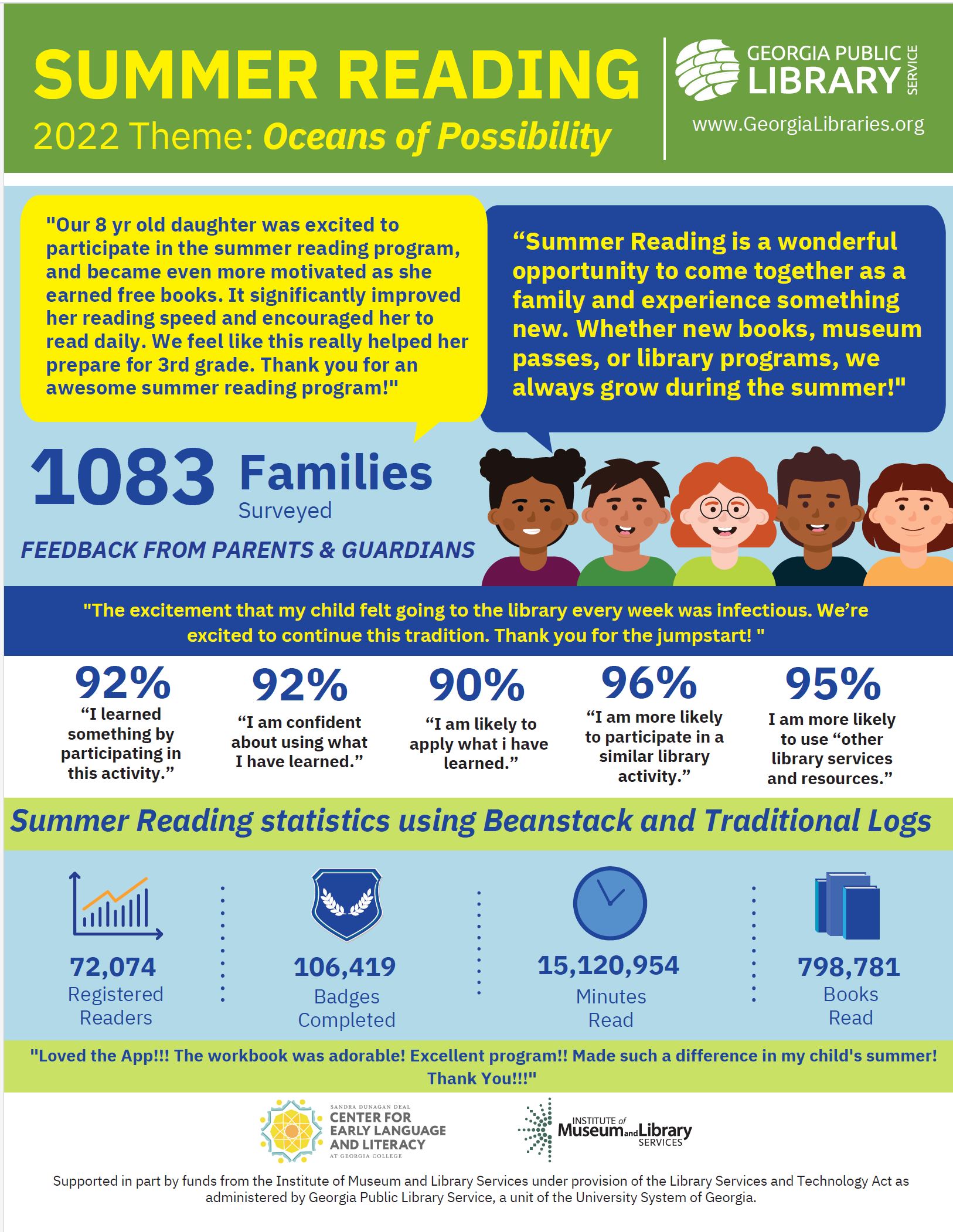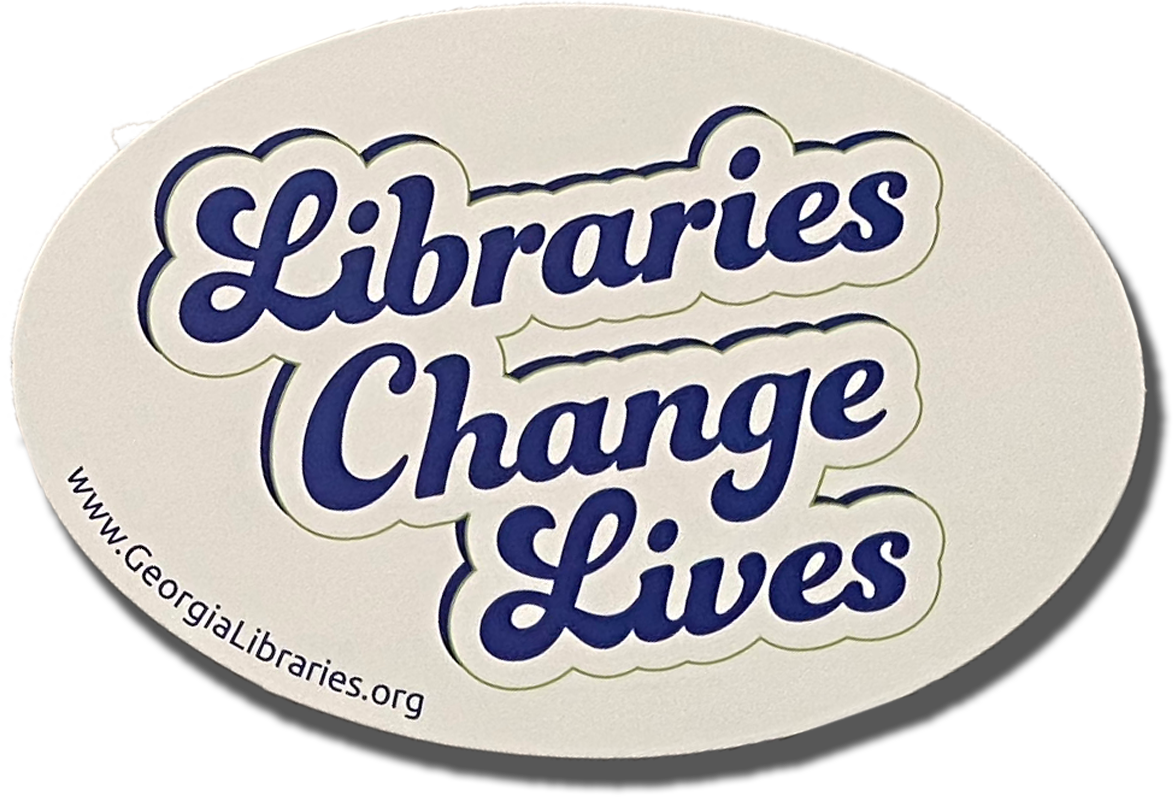Library Services and Technology Act (LSTA)
Access. Community. Literacy.
Funding from the Institute of Museum and Library Services (IMLS) under the Library Services and Technology Act (LSTA) enables Georgia Public Library Service (GPLS), as the state library administrative agency (SLAA), to provide equitable services to all Georgia public libraries. Leveraging federal dollars on a statewide scale creates this equity to ensure all Georgians have access to the same high-quality library programming and services, no matter where they live.
In FY2023, Georgia expended $4,845,780 in LSTA funding to expand learning resources, increase access to information, and provide lendable technology for individuals of all ages.
Goals from the Georgia FY2023-FY2027 Five-Year Plan (20 U.S.C. § 9134)
- Serve as trusted advisers to the library community;
- Develop a supportive community for Georgia’s public libraries;
- Ensure equal access to information and technology; and
- Foster a culture of learning statewide.

LSTA Funding Impact Hightlights
Funding Spotlight
The following documents summarize the impact that LSTA-funded programs and special projects have on communities across the state. Georgia’s public libraries remain core community anchors that provide services for everyday life and critical resources during unexpected events that affect all Georgians.
Prime Time
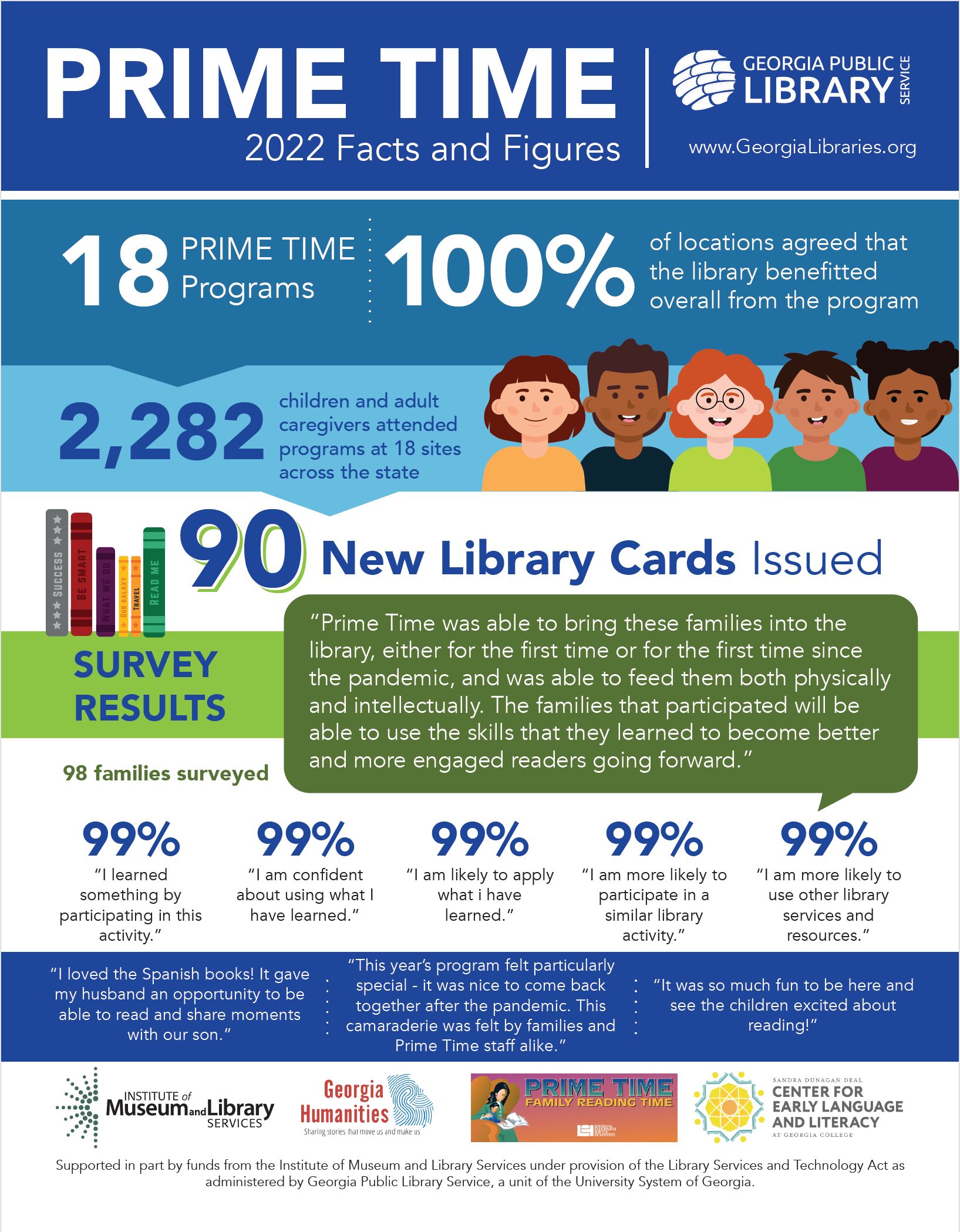
LSTA Grants to State Program
Through federal legislation under LSTA, IMLS distributes funding to state library administrative agencies (SLAAs), including Georgia Public Library Service, through a population-based formula each year. SLAAs are the official agencies charged by law with the extension and development of library services. Funds may be used to support statewide initiatives and services. Additionally, funding may be distributed through competitive subawards or cooperative agreements to public, academic, research, school and special libraries in each state. Each SLAA is required to submit a five-year plan that identifies library needs and establishes projects and activities that will support goals through LSTA-funded programs and services. SLAAs must also conduct a five-year evaluation of goals, projects, and activities based on that approved plan. Five-year plans and evaluations lay the groundwork for tailoring services that meet library needs and measuring the effectiveness of LSTA-funded programs and services in each state.
LSTA Purpose (20 U.S.C. § 9121)
- to enhance coordination among Federal programs that relate to library and information services;
- to promote continuous improvement in library services in all types of libraries in order to better serve the people of the United States;
- to facilitate access to resources in all types of libraries for the purpose of cultivating an educated and informed citizenry;
- to encourage resource sharing among all types of libraries for the purpose of achieving economical and efficient delivery of library services to the public;
- to promote literacy, education, and lifelong learning and to enhance and expand the services and resources provided by libraries, including those services and resources relating to workforce development, 21st century skills, and digital literacy skills;
- to enhance the skills of the current library workforce and to recruit future professionals to the field of library and information services;
- to ensure the preservation of knowledge and library collections in all formats and to enable libraries to serve their communities during disasters;
- to enhance the role of libraries within the information infrastructure of the United States in order to support research, education, and innovation; and
- to promote library services that provide users with access to information through national, state, local, regional, and international collaborations and networks.
LSTA Grants to States Priorities (20 U.S.C. § 9141)
- expanding services for learning and access to information and educational resources in a variety of formats, in all types of libraries, for individual of all ages in order to support such individuals’ needs for education, lifelong learning, workforce development, and digital literacy skills;
- establishing or enhancing electronic and other linkages and improved coordination among and between libraries and entities, as described in 9134(b)(6), for the purpose of improving the quality of and access to library and information services;
-
- (A) providing training and professional development, including continuing education, to enhance the skills of the current library workforce and leadership, and advance the delivery of library and information services
- (B) enhancing efforts to recruit future professionals to the field of library and information services;
- developing public and private partnerships with other agencies and community-based organizations;
- targeting library services to individuals of diverse geographic, cultural, and socioeconomic backgrounds, to individuals with disabilities, and to individuals with limited functional literacy or information skills;
- targeting library and information services to persons having difficulty using a library and to underserved urban and rural communities, including children (from birth through age 17) from families with incomes below the poverty line (as defined by the Office of Management and Budget and revised annually in accordance with section 9902(2) of title 42) applicable to a family of the size involved;
- developing library services that provide all users access to information through local, State, regional, national, and international collaborations and networks; and
- carrying out other activities consistent with the purposes set forth in section 9121, as described in the SLAA’s plan.
LSTA Documents
Approved Five Year Plan (FY2023-2027)
Five Year Plan Evaluation (FY2018-2022)
Previous Five Year Plans & Evaluations
- GPLS Approved Five Year Plan with Letter (FY2018-2022) (PDF)
- GPLS Five Year LSTA Plan Evaluation (FY2013-2017) (PDF)
- GPLS Approved Five Year Plan with Letter (FY2013-2017) (PDF)
Program Information
Funder Acknowledgement
Please acknowledge that funds for this project were provided by Georgia Public Library Service through the Library Services and Technology Act from the Institute of Museum and Library Services (IMLS).
Please do not use logos without first reading the guides provided by GPLS and IMLS.
